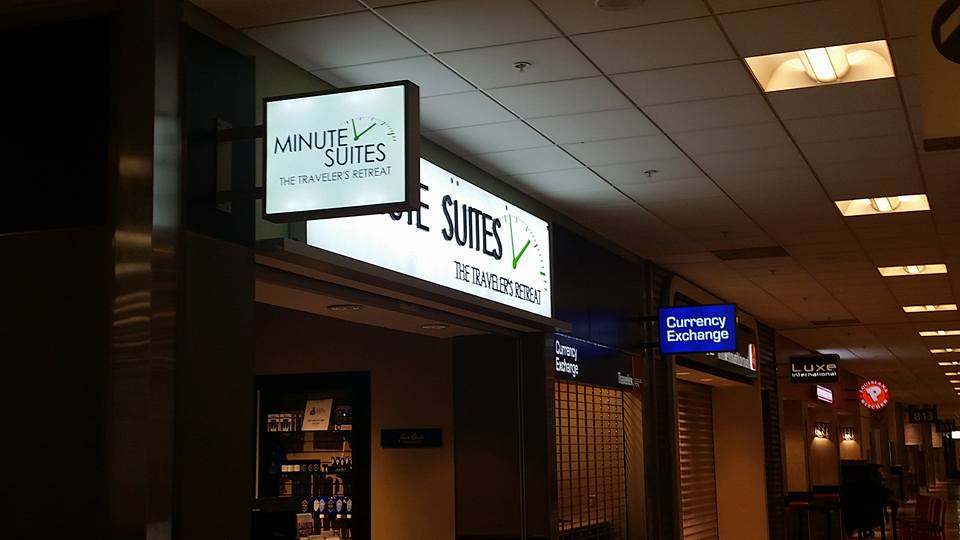By Gina Trimarco, Chief Results Officer
How often have you experienced a poor customer service situation where the employee says “I’m not allowed to do that” or “It’s our company policy”? It’s frustrating and annoying. One of the first things we teach in customer service training is what NOT to say. Don’t tell the customer what you CAN’T do, tell them what you CAN do. It gives power to both the customer and the employee.
This is another one of my pet peeves in service and I’ve become quite empathetic to many of these employees who feel powerless and genuinely frustrated, not to mention uncomfortable. No one likes to be at the other end of an unhappy customer, but it’s usually that front line, lower wage employee experiencing the wrath of bad situations. Of course, there are still those employees who don’t care and are quick to roll out the words, “Sorry, we can’t do that. You’ll have to talk to a manager.” Those employees need not be working for you, by the way.
My most recent “lack of empowerment” experience was with the Minute Suites at the airport in Atlanta. I missed my connection to Chicago. Delta was awesome to offer a free hotel room for the night, but my definition of “night” is check-in at 6pm, check out at 10am. My flight arrived at midnight and I would need to return to the airport at 6am to go through security again.
The thought of getting on a shuttle to a hotel and then coming back a few hours later when I was already exhausted was not appealing to me.
And if you read my post about how I value “comfort” you’ll understand that I’ll almost always pay more for convenience and experience.
Another stranded passenger told me about Minute Suites – “a wellness-based solution to the stress and fatigue caused by air travel” according to their website. This passenger told me that basically you can rent a small, private room at this airport kiosk with a couch, desk, smart tv and wifi … and NEVER leave the airport. Brilliant solution for me! Pricey at $150, but well worth it to me to get a solid six or seven hours of sleep now that I could skip the security line and all that waiting time. I was totally up for buying a solution for “stress and fatigue caused by air travel.”
stranded passenger told me about Minute Suites – “a wellness-based solution to the stress and fatigue caused by air travel” according to their website. This passenger told me that basically you can rent a small, private room at this airport kiosk with a couch, desk, smart tv and wifi … and NEVER leave the airport. Brilliant solution for me! Pricey at $150, but well worth it to me to get a solid six or seven hours of sleep now that I could skip the security line and all that waiting time. I was totally up for buying a solution for “stress and fatigue caused by air travel.”
The employee was very friendly and accommodating. Got me set up in my suite and walked me through all of the amenities. I got settled in, watched some tv and then went to sleep. At 1:30am I started hearing a weird man’s voice while a strobe light went off above my head and a weird siren was sounding off. The voice was saying something about an emergency in the building. Of course I freaked out and walked out of my room to find the nice employee but he was GONE! It was a bit surreal as I watched other employees in the airport going about their business and not reacting to this voice and strobe lights going off EVERYWHERE around me as I stood in the middle of the terminal.
Was this a terrorist attack? A fire? What?! In the distance I could see the employee come back and without even noticing my panic, he said,
“They’re testing the emergency system. They do this every week.”
And then when I asked him when it would stop he said, “Sometimes it goes on for about two hours, sometimes all night.” What?! This experience was NOT solving my stress and fatigue problem. It was worsening it!
I know what you’re thinking. You would have said what I said, “So, did you know that this would be happening tonight?” And he responds, “They never tell us when it’s going to happen, but it happens at least once a week overnight when there are no passengers.” So, believe it or not, I’m that understanding customer who understands that in the grand scheme of things, upsetting a few stranded passengers overnight is less important than ensuring the safety of all. I totally get that. This situation is totally out of the control of the employee and of the company.
Knowing that this always happens EVERY week gives the company and the employee an opportunity to really WOW the customer by being proactive AND having other solutions in place to create loyal customers. There are some super simple things that could have been done. Instead the poor powerless employee kept saying, “I’m sorry. There’s nothing I can do other than tell management and maybe they can talk to the airport in their next monthly meeting.”
Empowerment is not a job duty. It’s a relationship based on trust and confidence.
But over and over again I hear “Can you train our employees to be empowered?” That’s like a parent asking a teacher “Can you teach my child how to be responsible?”
In my early days as a corporate trainer I eagerly said, “Yes, we can do that”, in order to get the job. And then I quickly learned that clients who asked for that type of training were overwhelmed in their roles and just wanted a “quick fix” to their people problems. We DO indeed do this type of training but we start with MANAGEMENT and CULTURE STRATEGY, so that managers and leaders learn how to actually do the empowering!
The lack of empowerment execution is a symptom of a bigger problem – a leadership and culture problem.
Per Oxford Dictionaries, the definition of empowerment is “authority or power given to someone to do something.”
After a few attempts to “teach empowerment” (and appease clients) I found myself quickly empathizing with the employees in my training sessions as they said, “We really don’t know what we have the power to do.” Even more frustrating was the fact that those managers, who wanted our company to fix their “empowerment problems”, were never present for the training. It quickly became clear that the managers and leaders were the problem, not the employees.
“Giving authority or power to someone to do something” starts with “showing up” to give the power. It’s like being a “latch key” kid, left to fend for him or herself.
If the parent isn’t present to set boundaries and expectations a few things will happen:
1) Nothing will happen out of fear of failing or making mistakes
2) Something very wrong will happen because boundaries weren’t set or explained.
Both options can be costly to the bottom line as well as to morale and performance. Of course there’s the rare opportunity of things working out perfectly … usually by chance.
I’ve seen this empowerment issue come up a lot in the hospitality industry, specifically hotels where hotel guests are known to hold hotels “hostage” by threatening bad TripAdvisor, Yelp and Google reviews. Repeatedly employees would tell me, “We’re really not sure what we’re allowed to do. Can we refund someone’s room or do we just give them two free drinks in the hotel bar?”
This confusion is especially prevalent when there is a cost involved … “How much of the company’s money are we allowed to play with?” Fair question. And management often avoids answering the question. Why? Probably because the company culture and core values are not well defined especially as it relates to trusting these employees.
EMPOWERMENT EXAMPLE: Ritz-Carlton’s $2,000 Allowance
One of the most known examples of a company with clear employee empowerment is the Ritz-Carlton. To ensure a gold standard of customer service, Ritz-Carlton employees may spend up to $2,000 per guest to solve customer service problems without getting a manager involved. The Ritz-Carlton values are relational, not transactional. This approach puts the power in the employees’ hands to maintain relationships over time vs. transactions in the moment.
One thing to note is that the Ritz-Carlton has done its research and knows that the lifetime value of a customer is about $250,000. Smaller companies may not be able to afford $2,000 per incident, but the same approach can be taken in relationship to the value of customers remaining loyal customers over time.
Back to the Minute Suites employee … The employee didn’t need to have a $2,000 allowance but why not a $2.00 allowance to give me ear plugs that I had to pay him for? Plus, I bought Tylenol PM. If they had eye masks, I would have bought one of those too. And again, he apologized, “I would give you these ear plugs, but they track everything and I would get in trouble.”
Did they really want to lose a customer over losing 50 cents for their inventory cost of the ear plugs, I wondered?
I couldn’t be angry at this employee because luckily his powerless persona made him likable. He was kind and apologetic. Given a little power he could be a superstar who would most likely become a very loyal employee. I would certainly hire him because he was clearly trainable with the right attitude. Minute Suites is lucky to have him.
Here are some ways they could have created a loyal customer and empowered this employee by giving him the power to:
- Give free ear plugs and sleeping aids
- Give a discount on the service OR a discount on a future service
- Upon check-in, ask the customer more questions about how often they travel so they could market to ideal business travelers in the future. One doesn’t have to only sleep there. Maybe they could market to me to return to use a suite for a meeting or to do work in between flights.
- Give vouchers for a free or discounted meal with a partnering restaurant in the airport.
- Offer a refund to the customer and give them an option to not use their facility since the length of time of the test was unknown
None of these solutions would have financially crippled the company—just the opposite. Taking one of these actions would build a relationship that led to customer loyalty and lifetime value. As much as I travel, they could have created a monthly subscription program and turned me into a regular customer to the tune of $1,000 per year for the next 10 years.
If only they spent 50 cents on ear plugs to get a return of $10,000 from me alone, without counting the value of referral business!
How well do you empower YOUR employees?
Do they clearly understand their ability to problem solve and WOW your customers?
What is the value of having loyal customers?
-Gina
P.S. Check out my silly video of my experience in the airport at 1:30am, strobe lights and all!
P.P.S. If you’re feeling stuck, it’s time to pivot! Reach out to get unstuck with us!
ABOUT THE POST AUTHOR
Gina Trimarco, Chief Results Officer, knows how to pivot to profits from problems and find joy through the process. Her philosophy is that performance pays and people need to be trained to perform on the stage of business to achieve results.
pivot to profits from problems and find joy through the process. Her philosophy is that performance pays and people need to be trained to perform on the stage of business to achieve results.
Gina successfully pivoted her coaching firm, Gina and Company, into the new Pivot10 Results, a training and development company that helps business teams to quickly adapt their communications and engagement skills in leadership, customer and sales to achieve results by providing them experiential learning tools and strategies.




